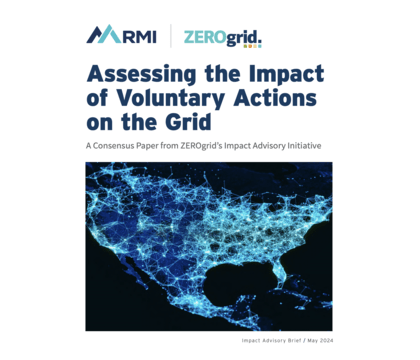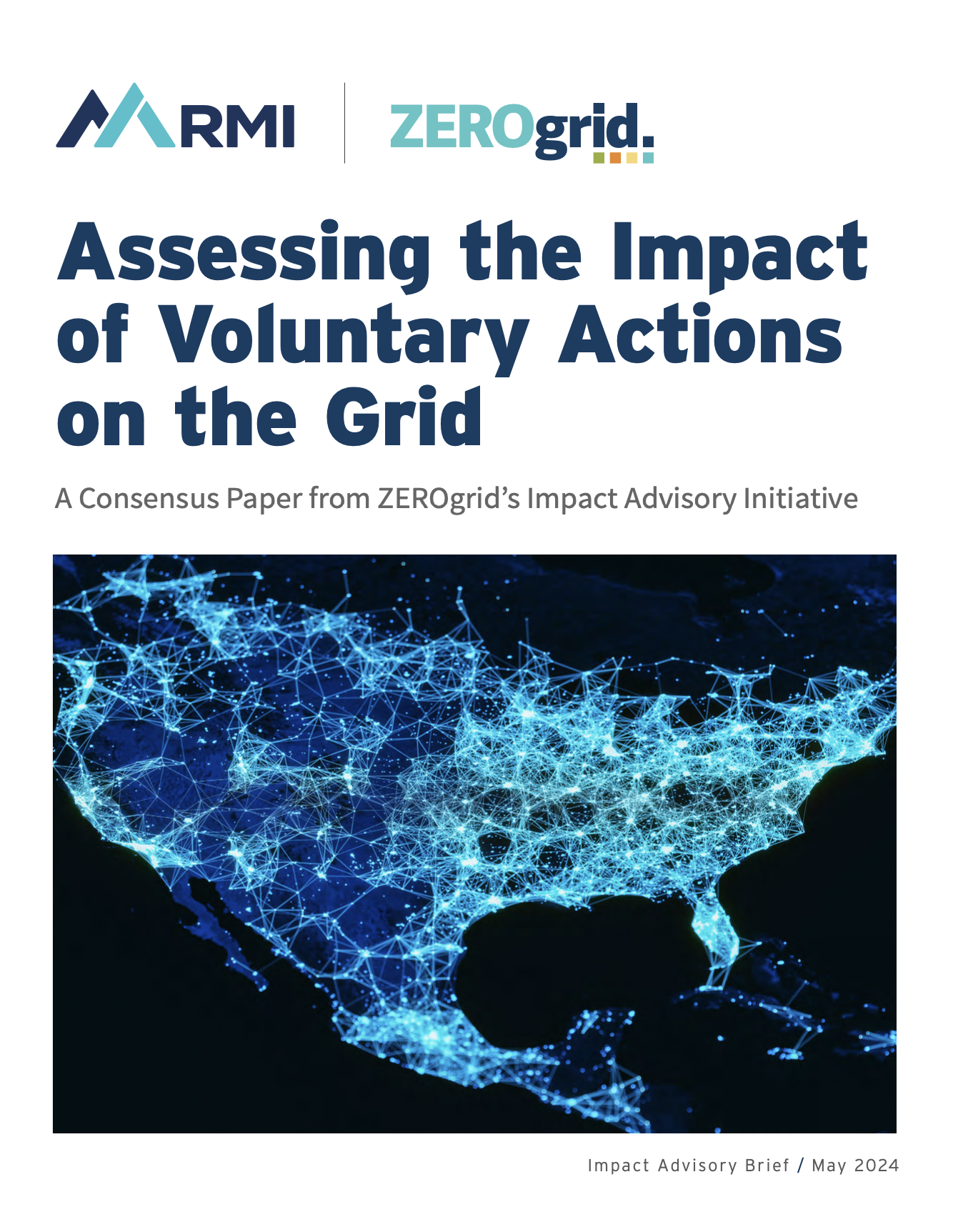
A Consensus Paper from ZEROgrid’s Impact Advisory Initiative, published by RMI and ZEROgrid
Executive Summary
Over the past 10 years, voluntary procurement of clean energy by corporations has been a tremendous driver of renewable energy development. Since 2014, large companies have signed procurement contracts supporting the development of over 70 gigawatts of renewable energy in the United States,1 in addition to purchasing renewable energy certificates (RECs), providing tax equity financing, and advocating regionally and nationally for more clean energy deployment. These voluntary procurement trends are continuing to scale and expand into other markets such as Japan, South Korea, and Taiwan.2
The urgency of the climate crisis is prompting many large energy consumers to consider how they can assess the impact of various actions on grid decarbonization and reliability. Such an assessment can be best made using consequential emissions impact analysis, which employs various approaches to estimate the difference between total global emissions in different possible states of the world.
Although many authors have published on consequential emissions impact analysis, there have been different views and until now no joint statement from differing authors on areas of consensus and how to resolve discrepant conclusions.
To provide greater clarity to corporate actors, ZEROgrid created the Impact Advisory Initiative, or IAI. The IAI comprises a group of expert practitioners from the National Renewable Energy Laboratory (NREL), Princeton University, REsurety, RMI, and WattTime who collectively identified key points of consensus as well as areas requiring further research.i
This paper provides an overview of the IAI’s findings regarding emerging areas of consensus about consequential emissions impact analysis, its implications, and areas where further research is required.
Areas of Consensus:
- Defining Impact. The true impact of any voluntary corporate action (or any action) is the difference in total emissions between a world where the action was taken versus one in which it was not taken.
- Components of impact. This impact is the sum of several different contributing effects, which must include the effects over the lifetime of the intervention — how an intervention changes the short-run operations of power plants, and structural change, i.e., how it changes the total supply of different power plants in the long run — to fully capture the impact of an action.
- Estimates versus true values. The field has a number of ways to produce estimates of total emissions impact and its components. Although there is agreement regarding how changes to short-run operations can be quantified, the field currently lacks — and indeed may always lack — any generally accepted way to empirically verify estimates of structural change. Therefore, any approach that seeks to measure total impact has (potentially significant levels of) uncertainty.
i The ZEROgrid initiative brings together a group of corporate actors, including Akamai, General Motors, HASI, Meta, Prologis, Salesforce, and Walmart, seeking to drive deep decarbonization alongside increased power grid reliability and affordability, working in collaboration with emissions and reliability experts. Additional information is available at https://zerogrid.org/.
Download the policy brief
"*" indicates required fields
View the brief on RMI’s website.
Return to the resources main menu.


